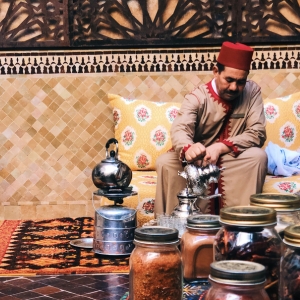Aiding Recovery: The Impact of Tourism After Natural Disasters
- Team FTLO
- Dec 11, 2023
- 4 min read
Updated: Sep 30, 2025
Natural disasters like the earthquakes that struck earlier this year in Türkiye and Morocco can wreak havoc on a country's infrastructure, economy, and overall well-being. Unfortunately, this, in turn, often leads to dwindling tourist numbers overnight. Natural disasters have a way of doing that—they raise safety concerns and force us to second-guess our travel decisions.
The truth is that tourism plays a pivotal role in not only rejuvenating a nation's economy but also in fostering resilience and recovery.

Tourism: A Global Economic Powerhouse:
In 2022, the travel industry flexed its muscles, contributing a whopping 7.6% to the global economy, and that's no small feat. It's a sector that generated income for 22 million people worldwide, making it a powerhouse in the job market. Just think of the people you interact with every day when you travel. From the cab driver the moment you step out of the airport to the local bar down the street from your hotel, everything you spend your money on when you travel is a contribution to the local economy that stems straight out of the tourism industry.
In Morocco, tourism makes up a robust 7% of the national GDP and sustains over half a million jobs. From its breathtaking coastlines to towering mountains and ancient cities, Morocco's diverse attractions draw travelers from every corner of the globe. Importantly, tourism’s a lifeline for rural areas, boosting local economies and creating much-needed employment opportunities.
If you flip the map to Türkiye, the numbers are even more staggering. In 2019, just before the pandemic hit, tourism injected a staggering $34.2 billion into the country's GDP, accounting for 12.1% of its economic muscle. This sector was a job creator, offering livelihoods to 2.4 million individuals. While the pandemic dealt a blow, Türkiye and the world were witnessing a slow but steady revival.
Unpacking the Economic Fallout of Natural Disasters:
Natural disasters leave scars that run deep, both physically and economically. The immediate aftermath is heartbreaking, but the long-term consequences can be equally devastating. Communities are left grappling with economic hardships, often taking years to rebuild. Restaurants close, tour guides go bankrupt, and families are left with less food on their plates.
According to the United Nations Office for Disaster Risk Reduction (UNDRR), annual economic losses from natural disasters now average a staggering $150 billion globally. But these figures barely scratch the surface. After the devastating floods in Pakistan in 2022 for example, a shocking nine million people were plunged into poverty, underlining the grim reality that often accompanies nature's fury.
Tourism's Role in Picking Up the Pieces:
Beyond the benefits provided to any normal economy, we believe that tourism can play a leading role in propping up economies that have been devastated by natural disasters as well.
Collectively, travelers spending money in-destination helps keep millions of people employed and that has a huge positive impact down the line. An artisan giving tours of his workshops brings in an alternative stream of revenue, which helps supplement the arts, keeping the craft and culture alive. A chef leading cooking classes for global travelers is not only able to keep the lights on, she’s able to purchase local goods and produce to both run her restaurant and provide income to local markets.
Tourism is no mere bystander in the face of devastation. The industry has the power to be a beacon of hope in post-disaster recovery:
A Lifeline of Jobs:
Tourism brings employment opportunities to communities in the aftermath of disasters. From hospitality and transportation to restaurants and guided tours, it offers a lifeline to those struggling to find work.
Rebuilding Beyond Tourism:
Restoring tourism-related infrastructure, such as hotels, airports, and attractions, not only rejuvenates the tourism sector but also bolsters overall urban development, injecting lifeblood into local communities.
Fostering Resilience:
Tourism ignites community engagement. Locals take pride in sharing their culture, heritage, and natural wonders with visitors, fostering resilience and a sense of ownership.
When speaking with CNN regarding the earthquakes in Turkey, boutique hotel owner Mehmet Ali Börtücener echoed our sentiments, “Tourism is one of Turkey’s most important sources of income and so every tourist who comes here actually helps in the alleviation of this trauma. After the earthquake, tourism decreased in the Antalya region, the sadness that people felt naturally reduced our work considerably.”
The tourism industry not only has a role in post-disaster recovery, in many ways it has a responsibility to help. After all, this is an industry that owes its existence to locals around the world.
At FTLO, we're proud of what we can do and how we can contribute to the preservation of unique cultures and heritages from Asia to the Americas. After any kind of disaster occurs, we time our return ensuring it’s beneficial both to the local economy and our travelers. We tread thoughtfully, only going back when our presence will contribute positively to recovery efforts.
The idea is simple: help foster resurgence while offering unforgettable travel experiences, one destination at a time.


















